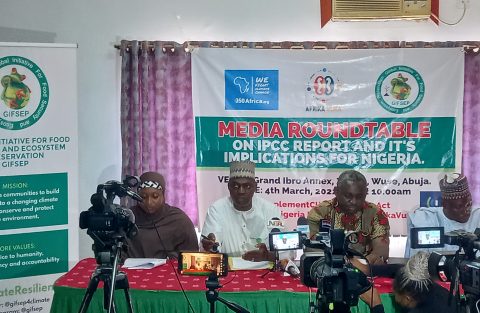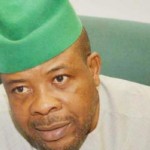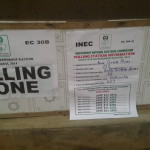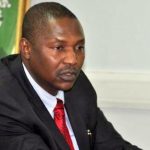Environmentalists Advocate Inclusive Climate Change Adaptation Measures
Latest Headlines, News Across Nigeria Saturday, March 5th, 2022
(AFRICAN EXAMINER) – Environmentalists and representatives of Civil Society Organisations (CSOs) have harped on the need for countries to adopt an inclusive and multi-stakeholder adaptation measures in the fight against climate change.
The Intergovernmental Panel on Climate Change (IPCC) Sixth Assessment (AR6) report which was presented on February 28, had called for adaptation policy and practice to be collaborative and participatory.
This observation was made at a Media Roundtable Discussion on the IPCC report, which was organized by Global Initiative for Food Security and Ecosystem Preservation (GIFSEP) with the support of 350 Africa, in collaboration with Citizen Climate International Abuja Group and the Center for Environmental Studies (CES), University of Abuja.
Participants at the event which was held in Abuja on Friday under the theme, “IPCC Report Assessment Report AR6 2022: Impact, Adaptation and Vulnerability; What Implication For Nigeria?”, said the views of stakeholders are needed to design the best adaptation measures and to keep track of whether they are succeeding or whether they might lead to maladaptation.
“Adaptation is not surrender. Adaptation to climate impacts and dynamics must now be a core element of how we organize human societies. It is vital to local planning and experience.
“The IPCC Working Group II report on impacts, adaptation and vulnerability urges that we must accelerate both mitigation and adaptation actions, to avoid accumulating risk and compounding costs”, the group said in their position paper presented at the event.
They noted that any further delay in concerted anticipatory global action on adaption and mitigation will miss a brief and rapidly closing window of opportunity to secure a liveable and sustainable future for all, adding that everyday activities and political assumptions need to evolve.
The group also reiterated the need for countries to develop early warning systems in order to minimize the risk arising from climate-induced disaster, noting that efforts should be made towards putting in place Community, State and National Climate Risk Register, Climate Change Vulnerability Mapping to identify the hotspot in the country as well as the provision of social safety nets.
“Acting with clarity, focus and ambition will be critical. That means understanding that early action reduces harm, risk and cost, later on. Finally, we must build resilience. Our proposed formula is – Climate Justice and Equity + Climate Finance = Climate Resilience”, the group further explained.
GIFSEP’s Team Lead, David Michael Terungwa said the concerns raised in the IPCC report, particularly those relating to increasing weather and climate extreme are, according to him, very problematic in sub-Sahara Africa, Central and South America and in some parts of Asia because they are the most vulnerable to climate change impacts.
Terungwa noted that since Africa has been mentioned as one of the hotspot regions, Nigeria which is the most populous nation in the African continent is a hotspot as well, adding that “Nigeria is a hotspot because we are in the tropics and we lack the resources to deplore climate adaptation measures”.
He further harped on the need for Nigeria and other countries in Africa to take decisive steps in tackling climate change in order to mitigate its impact, adding that it will however require huge financial resources.
“It is a problem that we did not cause as Nigerians, it is a problem that we did not cause as Africans but we have to deal with it because we are very vulnerable. How can we deal with it? We need money, climate finance, this is where climate justice comes in and this is my message to the international community, they must give us money, they must obey and remember their promises.
“All the pledges that were made during the Paris Conference were not fulfilled. So many pledges were also made last year in Glasgow and I don’t know if a kobo has come in yet and their attention has now shifted to Ukraine. The fact is that the problem is still with us. We need to adapt and build resilience. We cannot do this without money.
They must fulfil their promises and it is with this money that we can do energy transition. It is with this money, we can do climate smart agricultural practices. Our people need social safety net which climate income provides the best option”, he stressed.
Similarly, the Director of the Center for Environmental Studies, University of Abuja, Prof. Shuaib Hassan observed that based on IPCC’s report on vulnerability to extreme weather condition, Nigeria, according to him, is a victim and will likely remain a victim if proactive measures are not taken.
Prof Hassan said the issue of flooding as highlighted in the IPCC report is a perennial problem that affects many states across Nigeria, adding that the need to come up with adaptive measures that will help in solving the problem and other climate change challenges, cannot be overemphasized.
“We must include in our developmental plans a robust policy of maintaining green surroundings, discourage the application of herbicides in our agricultural practices, support institutions and agencies championing re-greening of our landscapes as well as encourage the utilization of alternative energy sources”, he suggested.
He also noted that “when we accept that climate change is not a problem and that we are the problem, then we will begin to succeed in implementing our adaptive measures”.
In his remarks, the Group Leader of Citizens Climate International Nigeria Chapter, Barrister Yahaya Dangana stressed the need for a speedy implementation of the Climate Change Act which was assented to President Mohammadu Buhari shortly after COP26 in Glasgow last year.
Describing the Act as the most beautiful bride in Nigeria, Dangana however, expressed concern over the delay in constituting the Council and Secretariat and other organs provided for in the Act to kick-start the implementation in order to tackle the broad range of climate change issues confronting Nigeria.
It is for this reason that we are looking at it from the law aspect, that delay defeats equity, is a doctrine which simply means that if you are having a problem and you are not prompt at solving the problem you are adding to it.
“We are looking at the silence of the presidency by not constituting the necessary organs that will activate the provisions of the Act, being indolent in the sense that the law is there but we have not activated its provisions.
“We are mindful of the fact that 2022 is a pre-election year in Nigeria, it is our prayer that the political activities outlined for the president and the cabinet will not preclude them from giving effect to the provisions of this law. This is a very busy year and we are craving and pleading with the President to give effect to it by constituting the council, by appointing a Director General that will head the secretariat, by appointing all the regional coordinators that will work and also look into the possibility of setting up a special court that would prosecute the violators.
“We believe that if this is done, history will not forget in ernest, the action of Mr. President, he would have had an opportunity of singing an Act and activating the Act. If it is left for the next administration that will come, we don’t know who will emerge as President, whether he/she will be an environment-friendly person or not”, he further stated.
Related Posts
Short URL: https://www.africanexaminer.com/?p=74438




















